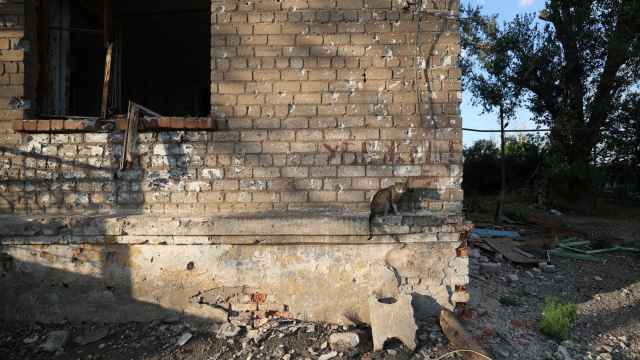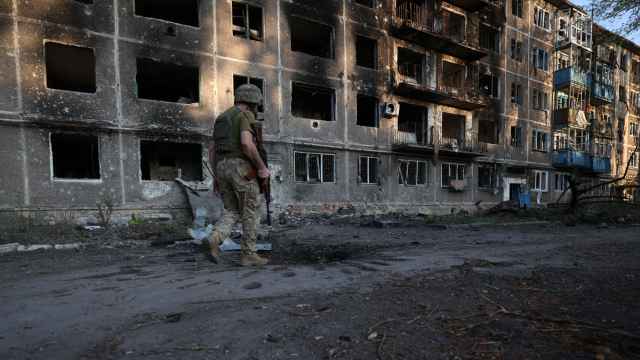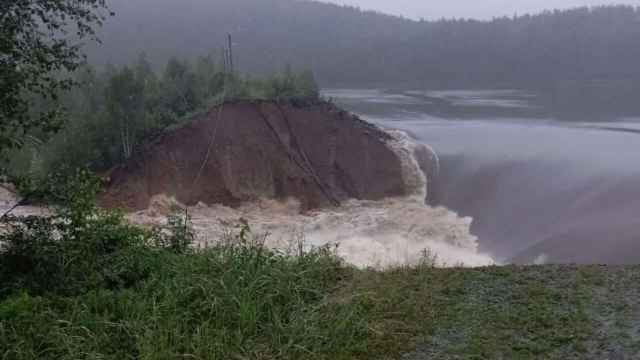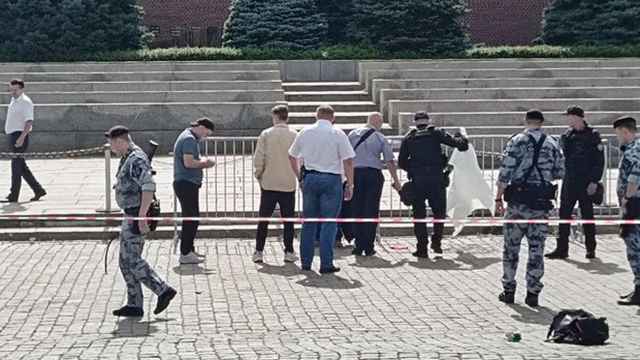SANYA, China — Japanese authorities may be exaggerating the scope of the country's nuclear disaster to reduce the liabilities of insurance companies, Russia's nuclear chief said Wednesday.
Japanese officials on Tuesday upgraded the severity of the emergency at the tsunami-damaged Fukushima Daiichi plant to a 7, putting it on par with the 1986 Chernobyl nuclear disaster, the world's worst.
"It is hard for me to assess why the Japanese colleagues have taken this decision. I suspect, this is more of a financial issue, than a nuclear one," Sergei Kiriyenko said on the sidelines of a meeting of major developing economies in southern China.
"I guess that maybe it could be linked to the definition of force majeure with regard to insurance. I would pay attention to that. It is a bit strange," Kiriyenko said without further elaboration.
Japan, which initially ranked the crippled plant at a 4, said it had taken time to measure radiation from the plant after it was smashed by March 11's massive quake and tsunami.
Officials were quick to add that increasing the rating to the highest level on a globally recognized scale did not mean the situation had suddenly become more critical.
According to the International Atomic Energy Agency, a Level 7 incident means a major release of radiation with a widespread health and environmental impact, while a Level 5 is a limited release of radioactive material, with several deaths.
No radiation-linked deaths have been reported since the earthquake and tsunami crippled the plant.
Several experts have agreed that Japan's new rating exaggerated the severity of the crisis and did not compare with Chernobyl, which blew the roof off a reactor and sent large amounts of radiation across Europe.
Kiriyenko said the damaged plant should have initially been ranked at a 5 or 6, a level he said still matched the severity of the leaking radiation given the current low risk of a blast.
"Our estimates showed that the level was between 5 and 6. Today it doesn't reach the 6th level," he said.
A Message from The Moscow Times:
Dear readers,
We are facing unprecedented challenges. Russia's Prosecutor General's Office has designated The Moscow Times as an "undesirable" organization, criminalizing our work and putting our staff at risk of prosecution. This follows our earlier unjust labeling as a "foreign agent."
These actions are direct attempts to silence independent journalism in Russia. The authorities claim our work "discredits the decisions of the Russian leadership." We see things differently: we strive to provide accurate, unbiased reporting on Russia.
We, the journalists of The Moscow Times, refuse to be silenced. But to continue our work, we need your help.
Your support, no matter how small, makes a world of difference. If you can, please support us monthly starting from just $2. It's quick to set up, and every contribution makes a significant impact.
By supporting The Moscow Times, you're defending open, independent journalism in the face of repression. Thank you for standing with us.
Remind me later.






